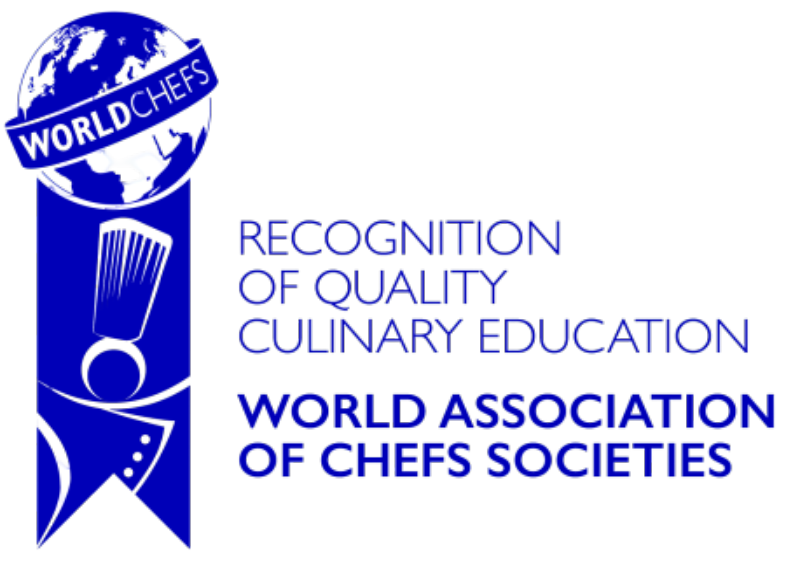Program Track: Associate of Applied Science in Culinary Arts – Apprenticeship #
Occupation Title: Sous Chef/Occupation O*NET-SOC Code: 35-2014.00
RAPIDS CODE: 0663HY
Licensed by the Michigan Department of Labor and Economic Opportunity: Certificate # 8604001333
Track Length: 24 Months (96 weeks of contact time) not more than 36 Months (1.5 times normal completion time)
Track Apprentice OJL Hours: 4000 Minimum not more than 6000 (1.5 times normal completion time)
Track Cost: Tuition and Fees – $18,340.00
Tuition and fees include: first-time payment by DIG to challenge the certification exams chosen by DIG; a knife kit and a chef uniform consisting of chef coats (2), chef pants (2), chef hat (1), kitchen apron (1); student membership in the American Culinary Federation; apprenticeship registration; technology. Textbook not included, cost not to exceed $100.00.
Program Track: Diploma – Sous Chef Apprenticeship #
Occupation Title: Sous Chef/Occupation O*NET-SOC Code: 35-2014.00
RAPIDS CODE: 0663HY
Licensed by the Michigan Department of Labor and Economic Opportunity: Certificate # 8604001333
Track Length: 24 Months (96 weeks of contact time) not more than 36 Months (1.5 times normal completion time)
Track Apprentice OJL Hours: 4000 Minimum not more than 6000 (1.5 times normal completion time)
Track Cost: Tuition and Fees – $18,340.00
Tuition and fees include: first-time payment by DIG to challenge the certification exams chosen by DIG; a knife kit and a chef uniform consisting of chef coats (2), chef pants (2), chef hat (1), kitchen apron (1); student membership in the American Culinary Federation; apprenticeship registration; technology. Textbook not included, cost not to exceed $100.00.
Program Track: Certificate – Culinarian Apprenticeship #
Occupation Title: Production Cook/Occupation O*NET-SOC Code: 35-2014.00
RAPIDS CODE: 3010HY
Track Length: 12 months (48 weeks of contact time) not more than 18 months (1.5 times normal completion time)
Track Apprentice OJL Hours: 2000 minimum not more than 3000 (1.5 times normal completion time)
Track Cost: Tuition and Fees – $9, 310.00
Tuition and fees include: first-time payment by DIG to challenge the certification exams chosen by DIG; a knife kit and a chef uniform consisting of chef coats (2), chef pants (2), chef hat (1), kitchen apron (1); student membership in the American Culinary Federation; apprenticeship registration; technology. Textbook not included, cost not to exceed $100.00.
Utilizing the United States Department of Labor (U.S. DOL) registered guidelines provided by the American Culinary Federation Education Foundation’s Apprentice department’s curriculum, enhanced with our unique course offerings, the student is fully engaged in a “learn while you earn” environment. Over seven globally recognized certifications are built into the program to measure student progress and produce a graduate that is ready to launch their career.
Since 1937, the U.S. DOL, Office of Apprenticeship (OA) has worked closely with employer and labor groups, vocational schools, state apprenticeship agencies, and others concerned with apprenticeship programs in U.S. industry. Each state has one or more apprenticeship agencies which monitor and regulate the programs within their state. Each one has different requirements relating to labor law and as such sometimes requires multiple governing agencies.
In 1979, the ACFEF apprenticeship program became a U.S. DOL registered apprenticeship program. This program was developed with the help of Jack Braun, CEC, AAC, Ferdinand Metz, CMC, AAC, and L. Edwin Brown. This program took the traditional European system of apprenticeship and combined it with the education system of the United States. Over the years of development and refinement, this program is a dynamic culinary arts program that combines on-the-job learning with online classroom instruction to provide future culinarians entering today’s workplace with comprehensive training in both the practical and theoretical aspects of work required in this highly skilled profession.
The standards of this training program are developed by chefs with a realistic view of a foodservice operation that includes competency-based learning objectives designed for the classroom and workplace setting. This model is purposefully designed to provide complimentary and reinforceable knowledge and skills.
The Detroit Institute of Gastronomy culinary arts program is a comprehensive hands-on culinary arts program designed to expand the student’s understanding of cooking and gastronomy through on-the-job training combined with distance education instructor led classes.





